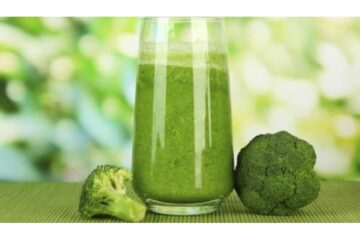In the wake of a difficult day at work and possibly a night exercise for sure, nothing is very as fulfilling as getting back home to a pleasant supper. Obviously, confused and conflicting work routines muddle this dream and some of the time we eat this supper at all various hours of the night.
The inquiry is however, is there a particular time you ought to have supper? We talked with Cynthia Sass, RD, CSSD, and NYC-and LA-based execution nutritionist and Sydney Greene, MS, RD, from Greene Health to investigate this inquiry further. What’s more, fortunately, there isn’t only one best an ideal opportunity to have supper.
What is the best an ideal opportunity to have supper so you don’t eat past the point of no return?
Eating a major feast before bed could unleash destruction on your rest cycle, so it’s significant that you time your supper designs likewise to keep away from possibly demolishing a tranquil night’s rest.
“The objective is to complete the process of having supper, and any sweet, at any rate 2-3 hours before bed,” says Greene. “For most [people], with rushed workdays, this isn’t altogether practical so set a non-debatable 1 hour before bed that is without food. Examination shows that the individuals who go 2-3 hours without eating before bed have a diminished disease hazard, insulin opposition, and irritation.”
Backtalk additionally shares a comparative perspective. “I by and large suggest three hours between the time you get done with eating and the time you hit the hay,” she says. “The special case is in case you’re a competitor or on a quality preparing project and attempting to construct muscle. For this situation, a lightish protein-rich nibble around one hour before bed is suggested.”
Is there a specific measure of hours you should stand by between the time you have lunch and when you have supper?
“As a rule, I urge customers to focus on 3-5 hours between suppers as this permits the body time appropriate time for processing,” Greene clarifies.
Backtalk additionally says that between 4-5 hours is an adequate measure of time to stand by among suppers and, as she let us know in the story, “This Is the Best Time to Eat Lunch” rehearsing care is key in deciding when your body needs its next feast.
“I encourage my customers to focus on craving and totality signs notwithstanding energy, state of mind, and different signs of when and the amount to eat,” she says. “I trust it’s ideal to have a gentle to direct degree of craving when you eat—not starving, yet some solid physical signs and indications of appetite.”
Consider the possibility that you have a light nibble in the middle of dinners.
Greene shares a comparable viewpoint on the significance of care as Sass.
“Tune in to your body. On the off chance that solitary two hours have passed by since you had your bite, feel free to eat. It is smarter to plunk down for a feast somewhat hungry than absolutely insatiable, as this forestalls indulging,” says Greene. “Since most [people] eat around early afternoon and 1 pm and afterward supper around 7 pm and 8 pm, I suggest focusing on a nibble around 3 pm and 4 pm.”
Greene likewise brings up that a bite ought to be under 200 calories and give some sort of protein and, preferably, have under five grams of sugar.
Imagine a scenario in which you work late or like to work out after work.
The most significant takeaway from this inquiry is to not skip supper, says Greene.
“I find when individuals skip suppers, they lean more on tidbits, which prompts gorging because of absence of generally fulfillment,” she clarifies. “On the off chance that [you’re] working out after work, have a light nibble around 4 pm.”
As a post-exercise nibble, Greene proposes one string cheddar with an apple, or two dried dates with 1-2 tablespoons of nutty spread, or a small bunch of high fiber wafers and 1-2 tablespoons of hummus. She likewise prescribes pressing a couple of nuts to eat post-exercise so you can quickly recharge your muscles. “Supper would then be able to be something light [like] a green smoothie, veggie scramble, [or] turkey roll-ups.”
Backtalk says that on the off chance that you work late, you should pack your supper or request something solid into the workplace.
“You would prefer not to work late, return home, have supper and hit the hay,” she says. “This doesn’t permit your supper to process a long time before rest, which can meddle with rest and may prompt weight gain since digestion eases back during rest as your energy request is lower during this time.”
Backtalk says that on the off chance that you hit the exercise center after supper, it’s ideal to part your dinner fifty-fifty and eat the main a large portion of a couple of hours before your night sweat meeting. At that point, feel free to eat the other half a short time later. She suggests eating the carb-substantial bit of your supper before working out so you have the energy to control through it and sparing the vegetables, protein, and sound fats for the post-exercise part of your supper.
What occurs on the off chance that you don’t eat an adequate feast for supper?
Eating a major feast can upset your rest cycle the same amount of as not eating enough before bed.
“You may not rest soundly or you may awaken in the night hungry,” clarifies Sass. “You additionally pass up key supplements required for upkeep, fix, and recuperating of cells in the body.”


